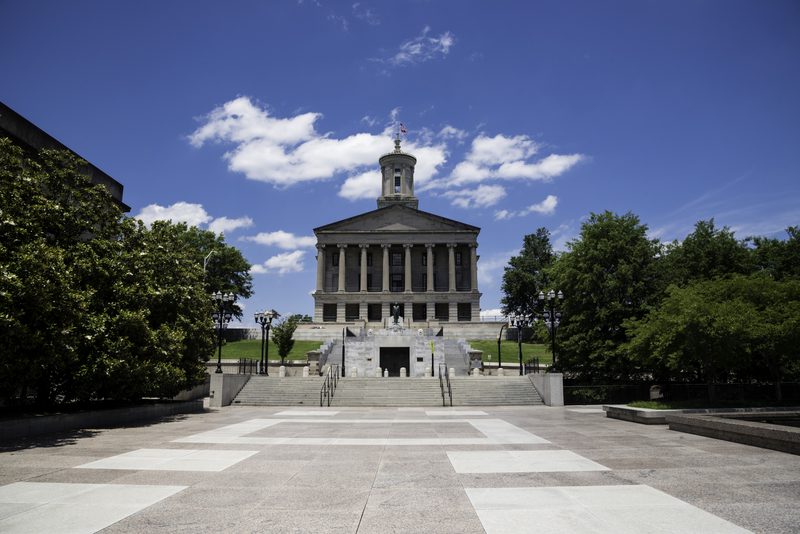NASHVILLE, TN (WVLT – WOKI) – The Tennessee General Assembly announced it has passed the state’s nearly $60 billion budget on Wednesday.
The House and Senate passed a $59.8 billion budget for the 2025-26 fiscal year.
The new spending plan shows a 2% growth rate with efforts to improve public safety, invest in infrastructure, advance education, and more, according to Republican legislators.
However, Democrats feel the budget missed the mark on important issues for middle class families. Democratic Senator London Lamar (D-Memphis) commented on the budget’s passage saying:
“Voters sent lawmakers to the Tennessee Capitol to cut costs for their families, improve our quality of life, and rebuild our crumbling middle class. But the legislature failed to meet the moment and this year’s budget is defined by the challenges it ignores. It does nothing to ease the burden on working families struggling with rising grocery prices, housing costs, and the loss of health coverage. In fact, Republican lawmakers blocked Democratic efforts to crackdown on gun violence, repeal the grocery tax, raise wages, and guarantee health coverage for all working families. They even slashed the governor’s own proposal to invest in affordable housing.
After passing the largest corporate tax break in Tennessee history just last year, working families were right to expect more from their state government. Instead, the biggest new initiative in the budget is a taxpayer-funded voucher scheme that hands $7,300 to 20,000 families already enrolled in private schools. Our families deserved better.”
The House and Senate passed a $59.8 billion budget for the 2025-26 fiscal year.
“The legislative amendment makes fiscally responsible adjustments to the administration’s initial budget proposal by shifting $19.94 million in recurring allocations to non-recurring, allowing the state to better manage long-term spending obligations,” Republicans said.
Below is a look at the budget breakdown from state Republicans:
Grant Pool for Community Services
In the budget, a $42.5 million grant pool was created, with nonrecurring funds, for important emergency and community services. The grants include:
- $20 million for Volunteer Fire Departments
- $5 million for Rescue Squads
- $5 million for Emergency Medical Services
- $5 million for Senior Centers
- $5 million for Local Museums for capital improvements
- $2 million for Courthouse Restoration
- $500,000 for Second Harvest Food Bank
Disaster Relief for Hurricane Helene
Hurricane Helene victims were provided $26 million nonrecurring for disaster relief in Northeast Tennessee and $20 million nonrecurring for local match funds for FEMA disaster relief.
Rural Hospital Support and Healthcare Investments
Lawmakers used TennCare Shared Savings to provide an additional $78 million to help hospitals, particularly in rural areas, with uncompensated care and $4 million to complete capital projects at county health departments.
Additional healthcare investments include:
- $4 million recurring to increase pediatric dental rates
- $3 million nonrecurring to the Adult Healthcare Safety Net
- $500,000 nonrecurring to assist those living with epilepsy and their caregivers statewide
- $1.4 million recurring to provide scholarships for the joint public-private partnership in the Medical School Early Acceptance Program between MTSU and Meharry Medical College
- $1 million nonrecurring to Live Like Lou Foundation for ALS research
- $1 million nonrecurring for Volunteers in Medicine
Safety and Security Improvements
The budget also provides additional allocations in safety and security:
- $5.4 million nonrecurring to improve campus safety and security at the University of Memphis
- $500,000 nonrecurring to establish and operate the UT Law Enforcement Innovation Center
- $400,000 nonrecurring to support the East Tennessee Regional Forensic Facility and Training Program
Major investments secured
In addition to the adjustments made to fund legislative priorities, the budget maintains investments proposed by Gov. Lee including:
- $1 billion into the road fund to address the state’s transportation infrastructure needs
- $62.7 million for K-12 infrastructure and facilities funding
- $244 million to strengthen education through the Tennessee Investment in Student Achievement (TISA) formula growth, including teacher pay raises
- $198.4 million for teacher bonuses in recognition of their hard work and dedication and for leading the nation in student achievement and growth
- $35.6 million investment into the Rainy Day Fund, bringing Tennessee’s reserves to nearly $2.2 billion, the largest in state history
- $25 million for FastTrack grants to recruit new business to Tennessee and support workforce development
Expanding choices for parents
The special session-passed school choice bill initiative invests $145.9 million in Education Freedom Scholarships.
Story courtesy of WVLT
















